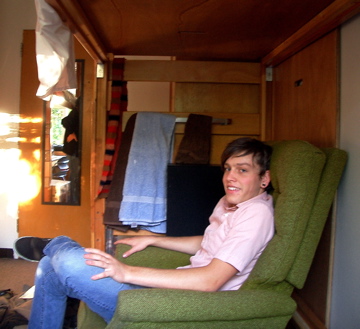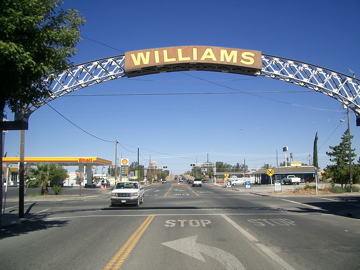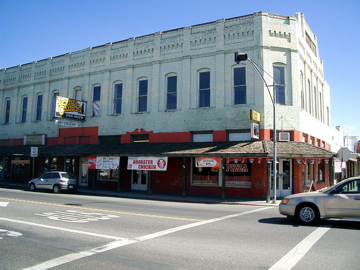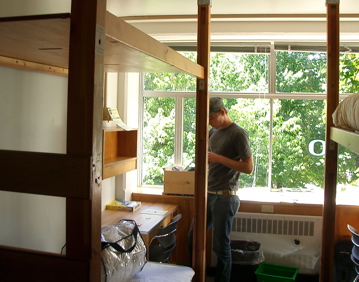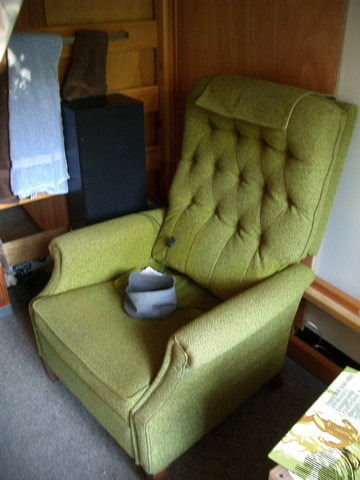
I’m writing from Berkeley again this evening. Kate and Thom and I pretty much finished the chores we wanted to get done up in Eugene by late in the afternoon. Then we all went and had pizza. And then Kate and I drove south along I-5, stopping in Medford overnight.
But the chores: Nothing complicated, really. Thom wanted to find a chair that would fit into his deluxe living space beneath his loft bed. For extra points, it would be great if we could come up with a stand or table of some kind for Thom’s retro audio setup — think turntable and vinyl and old-school receiver and speakers. And it would be good if we could find the stuff for less than a fortune.
Thom’s become something of a habitué of the local thrift stores, so we decided to go that route looking for the room furniture. First stop, on Friday, was a Goodwill in Springfield. Nothing doing, furniture-wise, though I did find a tie that features bottles of Tabasco sauce along with images of unshelled peanuts and pistachios. There’s just something off about it, which is why it’s appealing in a way that will make me keep it for some years and never wear it.
Back to the chair: One of our other chores was seeing whether we could get Thom’s cellphone (or its battery) replaced. While we were waiting on the results of the battery test, we decided to drive out to Target on the west side of Eugene to pick up a few necessities (detergent, etc.) that we hadn’t rounded up before. On the way out West 11th Avenue, we passed a St. Vincent de Paul’s store with a ton of furniture out in front. I turned around and we went in to shop.
There was one kind of nice brown plush swivel armchair on the front lot (the swivel feature was really what made it), but Thom decided to keep looking inside the store. They had some nice chairs that had been sold already. Then out in back we encountered what Thom called the most beautiful chair he had ever seen (a statement not necessarily an indictment of the kind of upbringing he had): a magenta chartreuse recliner. The Chair.
I went inside and asked how much it was. The woman at the counter said, “Everything out back there inside the yellow caution tape is a dollar.” The Chair was in the designated one-buck zone. And it turned out to fit pretty well in Thom’s room, too; and more than that, just the fun of finding it seemed to make the rest of the moving-in experience come together.
It is a cool chair.
